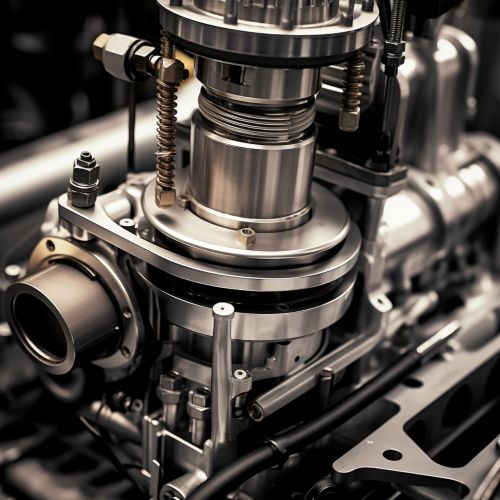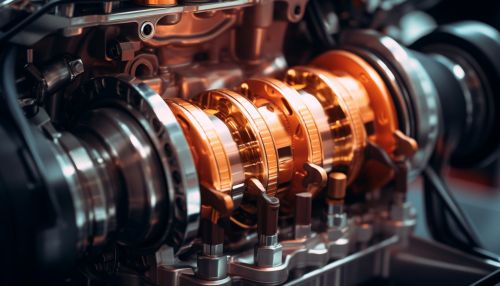Vehicle propulsion
Introduction
Vehicle propulsion refers to the various methods used to drive vehicles forward. This includes everything from the internal combustion engines used in traditional cars, to the electric motors used in modern electric vehicles, to the jet engines used in aircraft. The type of propulsion system used in a vehicle can greatly affect its performance, efficiency, and environmental impact.
Internal Combustion Engines
The most common form of vehicle propulsion is the internal combustion engine. This type of engine operates by igniting a mixture of fuel and air in a combustion chamber, creating a high-pressure gas that drives a piston. The piston's movement is then converted into rotational motion, which drives the vehicle's wheels.


Electric Motors
Electric vehicles use electric motors for propulsion. These motors convert electrical energy into mechanical energy, which is then used to drive the vehicle's wheels. Electric motors are highly efficient and produce zero tailpipe emissions, making them a more environmentally friendly option than internal combustion engines.
Hybrid Systems
Hybrid vehicles use a combination of an internal combustion engine and an electric motor for propulsion. This allows them to take advantage of the benefits of both types of propulsion systems. For example, the electric motor can be used for short trips and low-speed driving, while the internal combustion engine can be used for longer trips and high-speed driving.
Jet Engines
Jet engines are used for propulsion in aircraft. These engines operate by sucking in air, compressing it, mixing it with fuel and igniting it. The resulting high-pressure gas is then expelled out the back of the engine, creating a force that propels the aircraft forward.
Rocket Engines
Rocket engines are used for propulsion in spacecraft. These engines operate by expelling high-pressure gas out the back of the engine, creating a force that propels the spacecraft forward. Unlike other types of propulsion systems, rocket engines do not require an external source of air or other fluid to operate, allowing them to function in the vacuum of space.
Future of Vehicle Propulsion
The future of vehicle propulsion is likely to involve a greater use of electric motors and other forms of clean energy. This is due to increasing concerns about the environmental impact of internal combustion engines and the finite nature of fossil fuels. Other potential future developments include the use of hydrogen fuel cells and even more exotic forms of propulsion, such as nuclear fusion.
